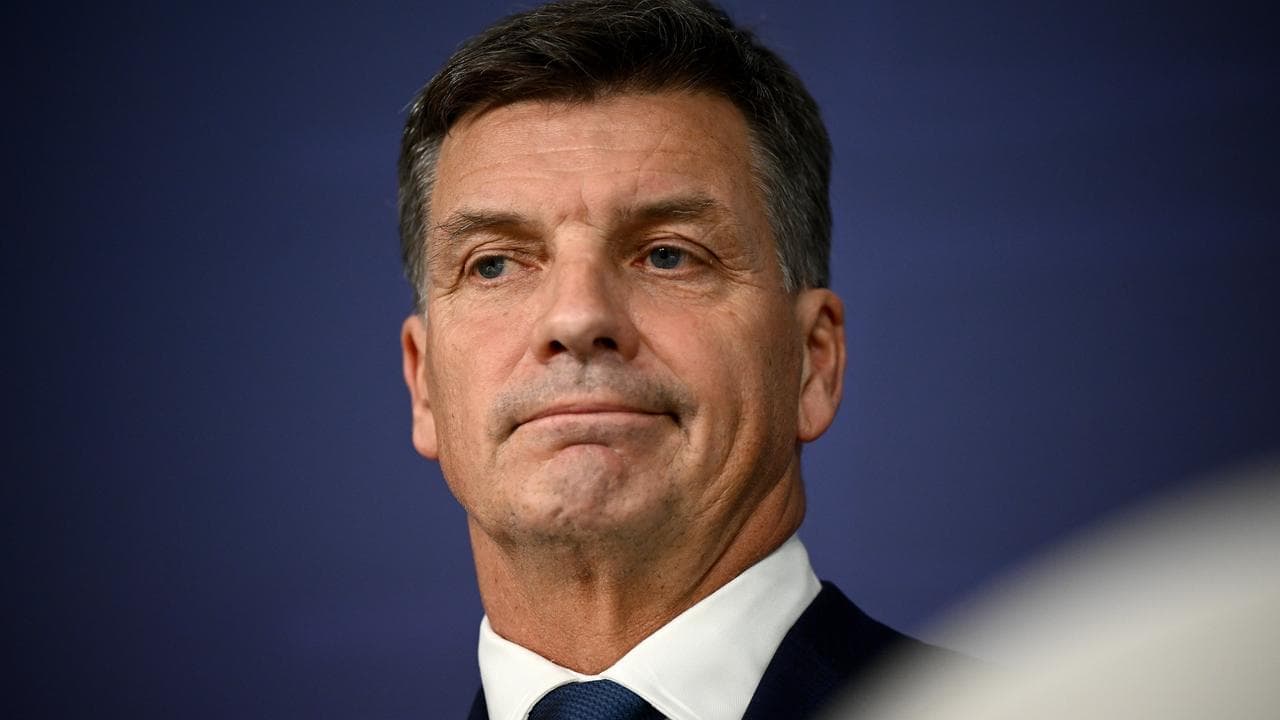Labor ministers are claiming Peter Dutton has said he'll cut Medicare and education if elected, despite coalition plans to match funding outlined in the current government's last budget.
The accusations are forming a key plank of Labor's re-election bid, with Prime Minister Anthony Albanese and senior ministers claiming the coalition will axe essential services.
"There's a theme emerging through this campaign with Peter Dutton and the coalition and that theme is cuts," Mr Albanese said in a Melbourne press conference on April 2.
"They support cuts to Medicare, cuts to education."
Education Minister Jason Clare claimed in a Facebook post that Mr Dutton said he'll cut education funding, while Environment Minister Tanya Plibersek said in an Instagram reel that Mr Dutton says he'll cut Medicare.
However, while Mr Dutton has said the coalition will reduce public servants in the health and education departments, he has pledged to match Labor's funding for frontline services.
That commitment includes an $8.5 billion uplift to Medicare bulk billing and backing education funding agreements that raise the federal contribution for public schools to 2034.

Asked for evidence to support the claim, Labor's campaign and Mr Clare's office pointed AAP FactCheck to comments Mr Dutton made recently about plans to shrink the federal public service if elected.
They also pointed to Mr Dutton's suggestion that federal school funding could be contingent on states following the curriculum. He was responding to a question about "woke agendas" in schools.
Mr Dutton said in his budget reply in late March that the coalition will reverse a 41,000-person increase in the size of the public service under Labor, claiming it will save $7 billion a year.
The coalition has since clarified the reductions will occur through attrition under a hiring freeze and has suggested roles enabling frontline services such as Medicare will be retained.
Labor argues the plan is a cut to Medicare and education because the departments of health and education administer those key services and will be hamstrung under any hiring freeze.
Budget documents show the average staffing levels across both departments have increased since Labor took office.
Average education department staffing level estimates for the outcome explicitly linked to education have risen from 779 before the last election (page 29) to 1049 budgeted over 2025/26 (p26).
Average staffing level estimates in the department of health, which includes aged care and sport, have risen from 4502 before the last election (p41) to 6726 budgeted over 2025/26 (p27).
Labor claims the additional staff in the departments are improving the government, with Finance Minister Katy Gallagher claiming that cuts will affect the delivery of services.
"When people are getting their payments, when the integrity of the Medicare system is being assessed, that all happens in the health department," Senator Gallagher told the ABC (timestamp 28 minutes 19 seconds).
"If you cut that, you cut Medicare, the system won't work."
But Mr Dutton told Sky News the coalition won't target frontline services under its hiring freeze and will instead identify "waste", leaving the door open to retaining new public service roles.
"The figures in the budget now for health and for education, they are the figures that we commit to - the same funding, the same spending on health and education," Mr Dutton said (7:30).
He went on to say that he wanted a "better understanding" of what federal department of education staff are doing and whether it's "helping kids in classrooms".
"Does it help to employ additional public servants in Canberra with classroom sizes or with additional support for kids with disabilities and with learning difficulties?" he said.
"I'm happy to be convinced of it."
The coalition hasn't said how it will shrink the public service to May 2022 levels, excluding staff delivering frontline services, while still saving $7 billion a year.
Nathan Kettlewell, a health economist at the University of Technology Sydney, said the federal health department administers the National Health Act, including Medicare programs.
But it also works on policy and other duties unrelated to daily Medicare operations.
Dr Kettlewell said the average person would define Medicare as the benefits the system entitles them to, rather than the inputs that go into administering the system in government.
"Cutting departmental staff may of course have consequences for public health, and whether that is good or bad policy is worth debating," he told AAP FactCheck.
"However, it is arguably misleading to call it equivalent to a cut to Medicare."
Stewart Riddle, an education expert at the University of Southern Queensland, also drew a distinction between services funding and the department.
He said the federal government is now signed up to schools funding deals that run to 2034 with states and territories that the coalition has promised to honour.
"A Dutton government could absolutely change the funding it provides to the Department of Education, including the reduction of staff," Professor Riddle told AAP FactCheck.
"But if it changes the funding provided for schools, that's a breach of agreements."
However, Prof Riddle pointed out that the coalition also promised to honour school funding in the lead-up to the 2013 election, before unveiling changes in the 2014/15 budget.
Emma Rowe, an education policy expert at Deakin University, said Mr Clare's statement that Mr Dutton has said he will cut education is "more hyperbolic than fact".
"We don't really have the details," Associate Professor Rowe told AAP FactCheck.
Nevertheless, she also doesn't see Mr Clare's comment as an "overreach" based on the coalition's historical position on public school funding.
Rachel Wilson, an education systems expert at the University of Technology Sydney, told AAP FactCheck cuts in the education department could have a "serious" impact on school students.
Dr Wilson explained the department administers the strategic targeting of schools funding and also measures performance against education targets, which is "much needed".
"Some of the major challenges in Australian education are due to a lack of reporting and transparency on where the problems lie, where resources would be most effectively directed and how we can monitor and improve the school systems," she said.
AAP FactCheck is an accredited member of the International Fact-Checking Network. To keep up with our latest fact checks, follow us on Facebook, Instagram, Threads, X, BlueSky, TikTok and YouTube.












